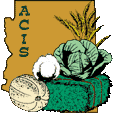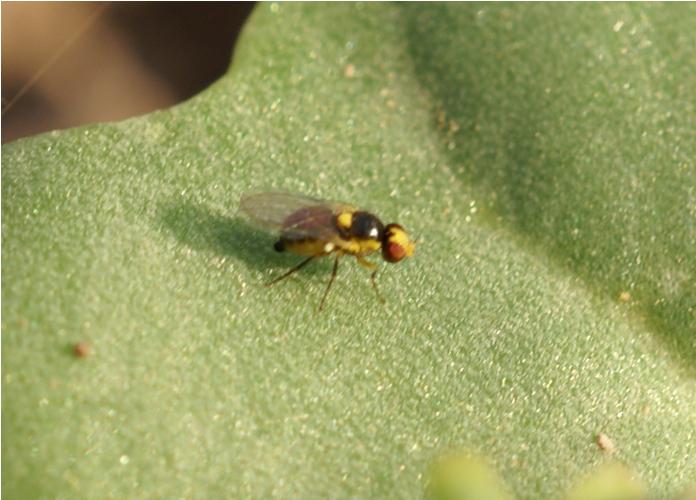 |
|
|
|

|
|||
| |
|||
Although the weather is beginning to break in the desert, PCAs shouldn't be complacent when it comes to leafminer management. Leafminer numbers have been light over the past few years, but we have recently observed unusually high numbers (both adults and damage) on melons and lettuce, particularly in the Yuma Valley. Furthermore, yellow sticky traps used for monitoring whiteflies throughout the area have been almost covered with leafminer adults over the past few weeks. Undoubtedly these numbers have been generated from melons and cotton. With temperatures forecasted to be in the mid-80s and 90s for the next week, leafminers adults will be looking for a good host plant, and, many of the leafy vegetables provide them with an ideal host this time of the year. If left uncontrolled, leafminer populations can rapidly reproduce under these weather conditions and cause significant damage to older, pre-harvest lettuce by feeding and damaging wrapper leaves of head lettuce and romaine. In addition, baby leaf lettuces, spring mixes and spinach are susceptible to larval feeding (mining) on the tender growing leaves. The good news is that they can be effectively controlled with currently available products. Radiant, Coragen and Voliam Xpress applied at higher rates can effectively kill developing larvae in the leaves before the cause significant damage. Similarly, Agri-Mek at 8 oz or greater can provide long residual control. For more information on leafminer biology and management please go to this link. Leafminer adult; Liriomyza sativae To contact John Palumbo go to: jpalumbo@ag.arizona.edu
|
|||
| Back | |||
For questions or comments on any of the topics please contact Marco Pena at the Yuma Agricultural Center. |
|||
| Home | Cotton
| Veggies | Forages
| Grains | Citrus
| Crop x Crop Insects | Diseases| Weeds | Pesticides | Economics | News | Weather | Research | Photos | Contacts | General Info. Copyright © 2001 University of Arizona, College of Agriculture and Life Sciences Webmaster: Al Fournier (acis@ag.arizona.edu) |
|||
